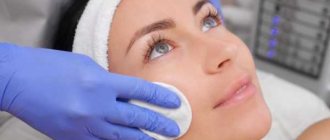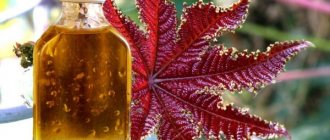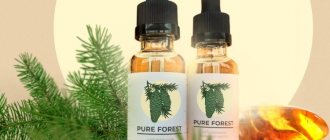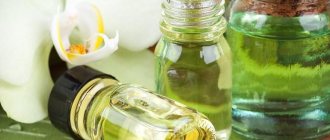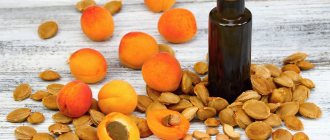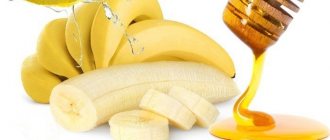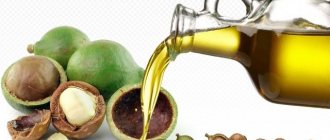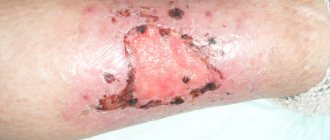If you have dry skin, coconut oil will be your best friend! First of all, coconut oil is popular for its moisturizing and nourishing properties. But don’t think that oil will only be beneficial for dry skin!
Coconut oil also has strong antibacterial, anti-inflammatory and regenerating effects, which will not please your pimples and blemishes. There is a rumor that the oil can cause acne. Is this true or not? How to use oil correctly? Are there any contraindications? You will receive an answer to all your questions today.
Why is it?
It is an edible oil extracted from the coconut kernel.
It has many different areas of application: cooking, health, beauty and medicine. It is often included in various cosmetics. This is because coconut oil perfectly moisturizes the skin and can also be used to remove makeup. Coconut oil is also good for teeth. However, use only natural, organic Extra Virgin oil if you want to get the maximum benefits and also avoid skin contact with pesticides that may have been used in non-organic coconut farming.
Composition of the miracle remedy
Coconut oil can give the skin irreplaceable and unique care, and at the same time it is effective against wrinkles. The thing is that the benefits of coconut are due to the presence of a rich, unique composition of the product.
Let's consider the main components of the herbal remedy:
- Folic acid - eliminates skin blemishes, inflammation, acne.
- Pantothenic acid - can smooth out facial wrinkles.
- Stearic acid - brightens the dermis, reduces age spots and freckles.
- Oleic acid - perfectly nourishes and restores mature skin.
- Vitamins B1 and B6 - exhibit regenerating and anti-inflammatory properties, heal and protect.
You may be interested in reading this article: Clay against blackheads: application features and effective masks
Video: beneficial properties of a natural remedy.
How can you use coconut oil for acne that appears on oily skin?
Nevertheless! Oil or fat is not necessarily the cause of acne. There are, of course, different types of fat, some comedogenic. There are fats that you use on your skin (various oils in cosmetics) and those that you eat (they affect sebum production). The most harmful ones, of course, are fats from fast food and any highly processed food - it’s best to get rid of these. But with organic, unrefined coconut oil, there's no need to worry—it's the "good" fat.
Essentially, it turns out that you are betting fat versus fat (oil versus skin fat). But there is a logic here. For example, in order to get rid of excess fat around the waist, you cannot simply give up fat in your diet altogether, because the body needs it. You just need to switch to “good” fats. Coconut oil (“good” fats) helps the body remove “bad” fats, toxins, impurities and acne from the depths of the pores. True, an intensive detox can lead to skin rashes, but they will gradually go away.
What are the benefits of coconut oil?
Vegetable oil is an excellent skin tonic. The advantage of coconut oil is that when used it moisturizes both the outer and inner layers of the skin.
Beneficial substances contained in natural oil activate blood circulation, smooth out wrinkles and remove harmful substances from the body.
Coconut product contains many useful substances: acids (lauric, palmitic, capric, oleic, capric, myristic, etc.), vitamins (A, E, D, B, K), microelements (phosphorus, iron, calcium, etc. .).
It is the chemical composition that determines the usefulness of the product:
- nutrition and hydration: helps with dry and flaky skin;
- bactericidal and anti-inflammatory effect: for pimples, acne and acne;
- regenerating property: accelerates the scarring process, eliminates spots and marks after acne;
- protection: the film that forms after applying a cosmetic product is protection from external negative factors.
In addition, coconut oil is quickly absorbed by the skin without clogging pores.
Coconut oil is an effective acne remedy
All of the above features of the product have a beneficial effect on the overall condition of the skin. But for acne problems, the main function is performed by lauric and capric acids in the oil. It is these components that help in the treatment of inflammatory skin processes. In addition, acids act as antibacterial, antiviral and antimicrobial substances, so the use of oil is quite justified. In coconut product, lauric acid makes up the largest part - 55%. It is this amount that allows you to effectively eliminate acne and relieve inflammation.
Very often you can find reviews that coconut remedy provokes inflammation and the appearance of new acne. Yes, indeed, such a result is possible, but only if the oil is used incorrectly. Therefore, the following information will help you avoid negative consequences and restore the natural beauty of your skin without complications.
How to use coconut oil for acne on face?
- Steam your clean face to open the pores; You can also simply dip a clean towel in hot water, wring it out and place it on your face.
- Drop 1 tsp. oil in your left palm, and with the fingers of your right hand, take it and apply it to your face in a circular motion. You can start with the cheeks, then move to the forehead, and then to the chin.
- Do not use oil in the eye or mouth area.
- Gently massage it into your skin to allow the nutrients to penetrate deeply.
- When finished, you can wash your face, preferably using natural herbal soap. But you definitely need to wash it, because... It is not recommended to leave excess oil on your face. If you have dry skin and it's cool outside, then you can add a drop of coconut oil to the soap to moisturize your face. That's all!
Methods of application
Coconut oil can be used either separately or with the addition of this product to ready-made cosmetic creams purchased in the store. Before use, the oil must be heated in a water bath, and then added to the desired substance.
The ratio of the components should be as follows: one part oil to two or three parts of a special care product.
If we are talking about applying coconut oil to the skin without adding any other ingredients to it, then you should follow these simple rules: using massaging movements, you need to cover your facial skin with an even layer, then leave the product in this form for half an hour, and then rinse with water or ice from a decoction of herbs or green tea.
The versatility of coconut oil lies in the ways it is used:
- as a day cream in the morning;
- instead of night cream just before bedtime;
- as a softener for lips or areas of skin prone to freezing during the cold season;
- as a substance that helps remove makeup.
To achieve the desired effect, you need to perform cosmetic procedures using coconut oil several times a week - only in this case your facial skin will delight you with its youth and healthy glow.
All about medicine
Natural coconut oil is used by many people as a natural and effective remedy for acne. Coconut oil has many antibacterial and anti-inflammatory properties that help get rid of blemishes and acne. Because it contains healthy fatty acids, coconut oil also acts as a natural skin moisturizer, which helps protect your skin and reduce acne.
However, there are people who have tried using coconut oil for acne, but they found that it did not help them. In fact, some say it caused their skin to have even more problems.
So what is the truth about coconut oil and acne? Can coconut oil really help you get healthy, acne-free skin? Many people are concerned that coconut oil is a comedogenic (pore-clogging) substance, and therefore can worsen acne.
In this article, I will look at the various reasons why oil extracted from coconuts can be an effective home remedy for acne for many people, as well as why it does not work for other people. You will also find helpful natural home remedies to get rid of acne and reduce the number of breakouts you have.
What is acne?
Glands in the skin produce a fat called sebum, which is necessary to keep the skin moist and protected. Changes in the body can cause the skin glands to produce more sebum, which then becomes blocked in the skin pores. Blemishes, pimples and blackheads occur when dead skin cells become trapped and become infected. Bacteria in the pores can cause inflammation, swelling, redness and pus.
A pimple occurs when an infection is located under the skin, resulting in a painful bump on the skin that may have a visible pus-filled center. They are sometimes called whiteheads, papules, or pustules depending on the type of acne.
Blackheads form when sebum and dead skin cells block the pores. Contrary to popular belief, blackheads are not an accumulation of dirt in the pores, but rather a reaction of the skin to a blockage in the pores.
Sometimes, a bacterial acne infection can penetrate deeper into the skin, causing cystic acne. Symptoms of cystic acne are large, painful bumps full of pus.
Factors such as hormones, emotional stress, menstruation, certain medications and foods such as white bread, rice and pasta can cause acne flare-ups.
Is coconut oil for acne a real help?
Most people find that coconut oil is an effective home remedy for acne, and that using coconut oil as a facial moisturizer helps prevent further acne. However, coconut oil may not be suitable for everyone with acne. This shouldn't be surprising because even pharmaceutical medications aren't effective for everyone with acne.
But the main reason is that coconut oil is rated 4 out of 5 on a comedogenic rating, with 5 being the highest, meaning it is quite highly comedogenic. So there is a good chance of your pores becoming clogged.
Although there is scientific evidence that coconut oil is beneficial for acne, many people have complained that coconut oil clogged their pores and made their skin texture rough. Some people have complained that coconut oil made their acne worse and they had more breakouts.
On the other hand, there is also scientific and anecdotal evidence that coconut oil has improved acne for many people.
The best way to find out if coconut oil will help clear up your acne is to try a small amount on a small area of skin.
The very properties of coconut oil can be improved by adding essential oils that have antibacterial activity or other natural ingredients that are beneficial for acne, such as aloe vera, baking soda and other oils that have been shown to get rid of acne.
Why Coconut Oil is Good for Acne Treatment
For many people, it doesn't seem logical to use oily substances like coconut oil to get rid of acne. However, coconut oil has many properties that will help you clear your skin of unsightly blemishes and pimples. Here are some reasons why coconut oil is beneficial for treating acne.
Coconut oil is antimicrobial
Coconut oil contains high amounts of lauric acid, a fatty acid that studies have shown has antimicrobial properties that can treat acne.
A 2020 study found that lauric acid is an effective topical treatment for acne vulgaris due to its antimicrobial activity. This means that coconut oil can help kill the bacteria that causes blemishes and pimples.
Antibacterial action
Coconut oil is also effective against Propionibacterium acnes (P. acnes), a strain of bacteria associated with inflammatory acne.
The Journal of Dermatological Science reported a study showing that lauric acid has strong antibacterial activity against P. acnes, making it effective in preventing the growth of acne-causing bacteria.
Anti-inflammatory
In addition to being antimicrobial, coconut oil is also anti-inflammatory and can help reduce redness and swelling caused by pimples and pimples.
Clinical trials of lauric acid have shown that it can help reduce swelling and inflammation. One study published in 2009 stated that lauric acid is “an alternative treatment to antibiotic therapy for acne vulgaris” 6.
Trying coconut oil for acne
So, as you've already seen, coconut oil has acne-fighting properties that can help reduce infection, kill bacteria that cause acne, and reduce inflammation caused by clogged pores and acne spots.
Another thing is that many people who have oily, acne-prone skin tend to aggressively use various products to combat acne. These products often have the opposite effect, stripping the skin of its natural oils. This causes the skin to compensate by producing more oil, which can make acne worse, but a little natural coconut oil can help break this vicious cycle.
Although coconut oil works very well for some, it is not for everyone. While the lauric acid content fights bacteria, the overall amount of oil can clog pores depending on the user. The only way to know how coconut oil will affect you is to try it.
It is recommended to start with a very small amount of virgin coconut oil. It's also a good idea to do a patch test to make sure you don't have an allergic reaction to coconut oil.
How to Use Coconut Oil to Treat Acne
The best way to use virgin coconut oil to treat blemishes, pimples, and pimples is to apply a small amount to the affected areas of the skin. Using only a small amount of coconut oil helps prevent clogged pores and allows the coconut oil to treat acne.
Coconut oil and essential oils for acne
You can mix coconut oil with essential oils to make a natural acne treatment.
Tea tree oil has been shown to have acne-fighting properties, and you can combine it with coconut oil to make an effective home remedy for acne. One study published in The Medical Journal of Australia found that topical application of 5% tea tree oil was as effective as benzoyl peroxide, a popular pharmaceutical drug used to treat acne. Although the tea tree oil lotion had a slower onset of action, it caused fewer side effects in patients.
Lavender oil is another essential oil that you can use to combat acne and cleanse your skin. A study conducted in Switzerland found that lavender oil has strong antibacterial effects and can kill P. acnes bacteria.
To make a natural topical acne treatment, mix 1 tbsp. natural coconut oil with 4 drops of tea tree oil and 4 drops of lavender oil. Mix well and store in a small glass jar. Apply a small amount of coconut oil mixture to the affected areas of the skin 2 or 3 times a day until your acne disappears.
Coconut Oil and Aloe Vera for Acne and Pimples
You can combine aloe vera with virgin coconut oil to make an anti-acne lotion.
Aloe vera is a well-known natural ingredient that can be used to relieve skin inflammation and burns. The Journal of Chemical and Pharmaceutical Research reported that aloe vera has many anti-inflammatory and antimicrobial properties. It can help treat acne, reduce wrinkles, and rejuvenate the skin.
Coconut Oil and Baking Soda for Acne
Another natural way to reduce the appearance of acne is to combine baking soda and coconut oil to make a smooth paste.
Baking soda also has antibacterial properties, which can work wonders on acne-prone skin. Research has shown that baking soda (sodium bicarbonate) is effective in killing various strains of bacteria. Plus, the grainy texture of baking soda makes it a gentle exfoliant for the skin to unblock pores to treat blackheads, pimples, and blemishes.
To help get rid of acne and unclog pores, mix baking soda with a little coconut oil to create a smooth paste. For more sensitive skin, use at least a 2:1 ratio of coconut oil to baking soda (2 parts coconut oil for every part baking soda). If your skin is not sensitive, you can use a 1:1 ratio (equal amounts of coconut oil and baking soda).
Apply the baking soda mixture to the affected area and gently massage the skin to unblock clogged pores and reduce the appearance of pimples. Leave on for a few minutes before rinsing off with warm water.
After cleansing your skin, apply a small amount of coconut oil to moisturize your skin and protect it from further breakouts.
Should you use coconut oil for acne?
The best way to know if coconut oil is an effective acne treatment is to try one of the natural home remedies above. Many acne sufferers have found that using coconut oil is an effective method for treating acne and preventing blemishes and pimples.
You should also remember that virgin coconut oil is not a magic solution for acne and the results of this vary from person to person depending on their skin type, age, lifestyle, as well as other factors.
There are many other natural ways to get rid of acne that you can find on this site. Some of these acne remedies include recipes using lemon oil, witch hazel, willow bark extract, and manuka honey.
About
Can it cause acne?
There is an opinion that coconut oil can cause acne, worsen skin condition and cause even more damage. This is true. Harm from the product occurs if:
- I am allergic to coconut and coconut extract. When taken orally or applied to the face, numerous red rashes appear that may be itchy and itchy. In this case, you should stop using the product and replace it with another product that is less dangerous to the body.
- The quality of the oil is low. Unscrupulous manufacturers produce a low-quality product, due to which 80-90% of buyers develop rashes, irritation, and peeling on the body.
Before purchasing a medicinal product, you need to make sure of its quality. You can recognize a fake if you pay attention to:
- Transparency. The real product should not be white (like coconut liqueurs, Bounty bar filling, etc.), but transparent without additional shades.
- Aroma. Pure coconut oil has a faint, barely perceptible odor. If the smell hits the nose, spreads throughout the room, eating away at the eyes, then this is a dubious substitute.
- Price. Too cheap oils on sales and on the Internet are almost always of poor quality. When buying oil to get rid of acne, skin and hair care, you should focus on the above-average price.
Pure coconut palm nut oil will not cause rashes and will reduce the likelihood of skin diseases due to its healing properties.
Oils with linoleic acid
Let's figure out what's so remarkable about this acid. Linoleic acid is the familiar Omega-6, one of the essential fatty acids that is beneficial when taken orally and has a beneficial effect on the skin, helping to restore the lipid barrier. Oils containing linoleic acid are recommended for skin conditions due to their anti-inflammatory activity. A lack of linoleic acid (which affects oily skin) leads to clogged pores and the formation of inflammation and acne. Fortunately, we can make up for this deficiency: it is often found in base oils. If you look at the list above, it turns out that we have already mentioned it more than once: when we talked about oils of black cumin, black currant, neem, borage, tamanu . You will find it in watermelon, cucumber, hemp, baobab, and avocado oil. Oily skin appreciates oils high in linoleic acid.
Reviews
Alicia. “Oddly enough, but it was this oil that had a wonderful effect on my acne! In just a couple of weeks I got rid of all the acne on my face! I’m very pleased and recommend it to everyone.”
Maksim. “Somehow nothing worked out... I did everything according to the instructions, but the acne didn’t go away. It's a shame."
Valya. “Only this product saved me from black spots on my nose. Before this they pissed me off so much! And now I feel great!”

